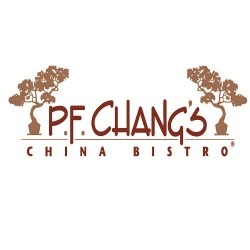 P.F. Chang’s will not face a class action lawsuit brought by a woman with celiac disease who claimed she was discriminated against when she was charged extra for gluten-free items at the restaurant chain.
P.F. Chang’s will not face a class action lawsuit brought by a woman with celiac disease who claimed she was discriminated against when she was charged extra for gluten-free items at the restaurant chain.
U.S. District Judge Ronald M. Whyte granted plaintiff Anna Marie Phillips’s motion to dismiss her lawsuit against the Chinese food restaurant chain with prejudice.
Phillips originally sued P.F. Chang’s in December 2014 in state court claiming that the $1 surcharge applied to gluten-free menu items violated the Americans with Disabilities Act (ADA).
For reasons described as “personal and private,” Phillips asked to be removed from the litigation, according to the order. Judge Whyte, however, dismissed the putative class without prejudice, meaning the case can be rebooted at a later time.
“Plaintiff asserts that this case is meritorious despite her inability to move forward,” the order said. “Because plaintiff’s counsel is unable to find a substitute class representative at this time, plaintiff requests that this action be dismissed with prejudice as to her and without prejudice as to the putative class.”
In her motion for voluntary dismissal, Phillips also pleaded with the court to deny attorneys’ fees and costs to P.F. Chang’s since there is no threat that she will reinstitute the claims after it is dismissed with prejudice to her. But Judge Whyte denied the request, saying that as the prevailing party, P.F. Chang’s should be allowed to collect its costs.
“Plaintiff’s voluntary dismissal with prejudice as to herself confers prevailing party status upon defendant because it operates as a judgment upon the merits and materially alters the parties’ legal relationship by barring plaintiff from re-filing the claim against defendant in federal court,” Monday’s order said. “As the prevailing party, defendant presumptively should be allowed to collect its costs.”
Phillips’ original complaint noted that although some adjustments to regular menu items come at no extra charge, all meals on the gluten-free menu are more expensive, even those that naturally contain no gluten.
The restaurant’s designated gluten-free menu includes 19 appetizer, entrée, and dessert options that either contain no gluten as prepared or can be modified to be gluten-free. These items are each $1 more expensive than their gluten-containing counterparts.
She contended that the extra $1 surcharge reflects unequal treatment of those who are medically required to avoid gluten, such as those with celiac disease and was a violation of California’s Unruh Civil Rights Act.
Judge Whyte dismissed the original complaint in August, but reversed course once the plaintiff amended her complaint. On Nov. 23, he ruled that Phillips had sufficiently argued her claims that celiac disease is a recognized disability under California discrimination law in that amended complaint.
“(P)laintiff has pled, and repeatedly argued, that gluten-free foods are not materially different from other foods, in ingredients or difficulty of preparation, yet celiac customers are forced to pay more for gluten-free meals,” Whyte wrote.
Phillips had alleged that P.F. Chang’s did not impose a similar surcharge to other customers who requested modifications to items on the regular menu.
Her attorneys argued P.F. Chang’s did not charge extra to customers who wished to make dishes less spicy or vegetarian, as well as those with peanut allergies who requested their food avoid contamination with peanuts or peanut oil.
They also said P.F. Chang’s targeted customers who need gluten-free items with the $1 surcharge.
“Plaintiff’s allegations may not be able to be proved,” Whyte wrote. “(A)ccording to Plaintiff’s own allegations, even if two menu items contain the same naturally gluten-free ingredients, they cannot be prepared in the same way.”
Phillips filed the class action lawsuit on behalf of anyone with celiac disease or gluten intolerance who ate from P.F. Chang’s gluten-free menu in California over the past four years – which, according to estimates, could include 3,000 people.
The P.F. Chang’s lawsuit sought to remove the added menu costs, and receive restitution for surcharges that have already been paid as well as other compensation and penalties.
Phillips is represented by Anthony Joshua Orshansky and Justin Kachadoorian of Counsel One PC.
The P.F. Chang’s Gluten Allergy Discrimination Class Action Lawsuit is Anne Marie Phillips v. P.F. Chang’s China Bistro Inc., Case No. 5:15-cv-00344, in the U.S. District Court for the Northern District of California.
ATTORNEY ADVERTISING
Top Class Actions is a Proud Member of the American Bar Association
LEGAL INFORMATION IS NOT LEGAL ADVICE
Top Class Actions Legal Statement
©2008 – 2025 Top Class Actions® LLC
Various Trademarks held by their respective owners
This website is not intended for viewing or usage by European Union citizens.














